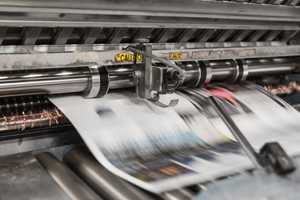You will get in contact? We’d be glad to.
You can call us by phone at the usual business hours.
Our postal address:
Francotyp-Postalia Holding AG
Prenzlauer Promenade 28
13089 Berlin
You can call us by phone at the usual business hours.
Francotyp-Postalia Holding AG
Prenzlauer Promenade 28
13089 Berlin


Berlin, 28.02.2019 – The signing and sending of contracts, quotations, forms and certifications in hard copy can take days or even weeks. With digital or electronic signatures, this process can be significantly shortened. This is because the time-consuming process of sending the document back and forth by post can be avoided. Instead, all participants can exchange the corresponding document and apply legally valid signatures within minutes. This means of signing contracts has enormous potential, particularly for small and medium-sized enterprises and for the self-employed, because it allows processes and the conclusion of transactions to be greatly accelerated. This saves time and hence also money. It also means that documents can thus be conveniently signed on the go using a smartphone or tablet.
But when do the different forms of electronic signature become legally binding? Francotyp-Postalia (FP), expert in the secure mailing business and secure digital communication processes, has the answers:
1. Legally binding certificates
In 95 percent of all commercial contracts and processes, the advanced electronic signature is used. This uses a certificate to secure the integrity of the document. It can thus be demonstrated at any time that the document has not been edited in the course of the signing process.
2. Highest security level thanks to digital identity
The qualified electronic signature (QES) guarantees the highest security level for digital signatures, and fulfils the requirements of the EU Regulation on electronic identification and trust services (eIDAS). It is used for example in the signing of employee secondments, statutory health insurance billing, and consumer loans.
To use the QES, the user has to register and confirm their digital identity. This can be done by the trust services provider D-TRUST, operated by the German Federal Printing Office (Bundesdruckerei). To do this, the user applies for a signature card, for which they need to identify themselves using PostIdent. A special card reader and a software application then allow the user to generate an electronic signature, and thus sign documents.
It is even simpler using the combination of ‘sign-me’ from Bundesdruckerei and FP Sign. The digital identity is recorded using the VideoIdent method, and saved by Bundesdruckerei. The user then logs into his FP Sign account to complete the convenient SMS authentication process to validate the electronic signature. No signature card or card reader are required, making it even simpler to sign documents on the go.
3. Important exceptions
There are however a number of special cases in which neither the advanced nor the qualified electronic signature can be used. These are primarily notarial contracts and matters covered by family law. The reason for this is that the legislator wishes to ensure an even higher level of legal certainty in these cases, and therefore continues to only accept the hard copy form.
For press enquiries please contact:
Konstantin Krüger
Tel.: +49 (0)40 899 699 576
Email: fp-presse@fischerappelt.de
Company contact:
Karl R. Thiel, Head of Brand Communication/PR
Tel.: +49 (0)30 220 660 123
Email: kr.thiel@francotyp.com
Follow us on social media:
Facebook, LinkedIn, Twitter, Xing and YouTube. Or subscribe to our RSS Feed.
About Francotyp-Postalia:
The listed and globally operating FP Group with headquarters in Berlin, Germany, is an expert in the secure mailing business and secure digital communication processes. As the market leader in Germany and Austria, the FP Group offers digital solutions in the areas of “Software”, “Mail Services” and “Franking and folding/inserting”, as well as products and services for the consolidation of business mail and the efficient processing of mail in companies and public authorities. The Group reported revenues of more than 200 million euros in 2017. Francotyp-Postalia has subsidiaries in ten different countries and is represented by its own distributor network in an additional 40 countries. With a company history spanning 95 years, FP possesses a unique DNA in the areas of actuating elements, sensor systems, cryptography and connectivity. FP’s global market share for franking systems is more than eleven percent.
Further information can be found at www.fp-francotyp.com.
Francotyp-Postalia Holding AG, a listed company based in Berlin, is the holding company of the globally operating FP Group (FP). FP is an expert in solutions that make office and work life easier and more efficient. FP has the following business units: Digital Business Solutions, Mailing, Shipping & Office Solutions and Mail Services. In the Digital Business Solutions business area, FP improves customers' business processes with solutions for document workflow management, business process management & automation and shipping & logistics. In the Mailing, Shipping & Office Solutions business unit, FP is the world’s third-largest provider of mailing systems and is also the market leader in Germany, Austria, Scandinavia and Italy. FP has subsidiaries based in 15 countries and is represented by its own trading network in many other countries. In the Mail Services business unit, FP offers the consolidation of business mail and is among the leading providers in Germany. In 2022, FP generated revenue of EUR 242 million.
